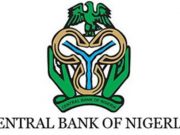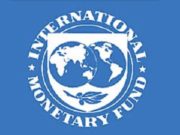The President Bola Tinubu-led federal government has outlined its strategies for debt servicing and financing in 2024, with significant increases in both allocations compared to 2023.
A major highlight of the debt servicing plan is that the federal government will start repaying N23 trillion it owes the Central Bank of Nigeria (CBN).
These are contained in the budget details President Bola Ahmed Tinubu presented to the National Assembly last week.
As part of its strategy for servicing its debt obligations in 2024, the federal government has made a total allocation of N8,490,960,606,831. This figure represents a significant increase from the N8,250,000,000,000 budgeted for debt servicing in 2023.
The breakdown of the debt servicing allocation is as follows: Domestic debts (including Ways and Means): N5,499,702,927,540.091; Foreign debts: N2,747,595,527,533 and Sinking Fund to retire maturing promissory notes: N243,662,151,758.
The increase in the debt servicing allocation is attributed to the rising cost of debt servicing due to global economic factors and the need to meet maturing obligations especially the repayment of the Ways and Means obtained from the CBN over the years.
The government has pledged to prioritize debt servicing to ensure the country’s financial stability and creditworthiness.
The allocation for domestic debts constitutes the largest portion of the debt servicing budget, reflecting the government’s focus on domestic debt management.
The government has expressed its commitment to reducing reliance on foreign borrowing and promoting domestic debt financing.
The allocation for foreign debts highlights the government’s efforts to address its external debt obligations.
The allocation for the Sinking Fund demonstrates the government’s commitment to meeting its maturing obligations promptly.
This fund is dedicated to repaying maturing promissory notes, which are short-term debt instruments used to finance government operations.
The government’s debt servicing plan for 2024 underscores its dedication to maintaining financial stability and ensuring sustainable economic growth. By prioritizing debt servicing, the government aims to maintain investor confidence and attract foreign capital.
Regarding the 2024 Budget Financing Plan, the federal government has outlined its financing strategy for the 2024 budget, with a total allocation of N9,178,930,385,914.
The breakdown of the financing allocation shows that Debt Financing will gulp N7,828,529,477,860; Asset Sales/Privatization N298,486,421,740 and Multi-Lateral/Bi-Lateral Project-Tied Loans: N1,051,914,486,314
The increase in the overall financing allocation is attributed to the government’s ambitious plans for infrastructure development and economic diversification.
The government has pledged to prioritize capital expenditure to stimulate economic growth and create employment opportunities.
The allocation for debt financing constitutes the largest portion of the financing budget, shows that the government will occasionally be borrowing to meet its financial obligations.
The government has equally expressed its commitment to fiscal discipline and ensuring that debt levels remain sustainable.
The allocation for asset sales/privatization highlights the government’s efforts to generate non-oil revenue.
The government has identified several assets for potential sale, to this end the the federal government has earmarked N20 billion to recapitalize the Ministry of Finance Incorporated (MOFI) for facilitate the sale of some these assets.
The allocation for multi-lateral/bi-lateral project-tied loans underscores the government’s engagement with international partners to finance critical infrastructure projects.
The government has secured funding from various multilateral institutions and development partners for projects in sectors such as transportation, energy, and agriculture.
The government’s financing plan for 2024 demonstrates its commitment to economic growth and development. By diversifying its financing sources and prioritizing capital expenditure, the government aims to address the country’s infrastructure deficit, boost economic productivity, and create a more resilient economy.
Credit: thenationonlineng.net








































































